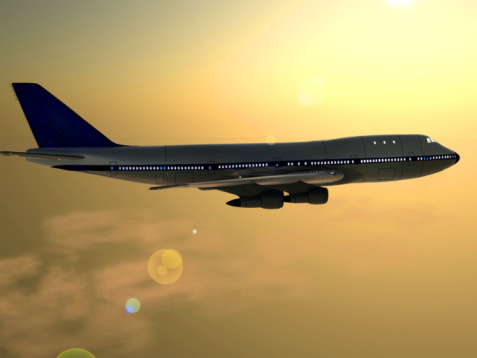Investing
AMR/U.S. Airways Merger to Raise Your Ticket Prices and Lower Service Expectations
Published:
What are the biggest fears of the consumer with airlines? Outside of safety and crash issues, those fears are likely to be the price of tickets to fly and the cost of services. If you have been a flyer in the skies for years and years, it is no secret that airlines have lowered services, shrunk your seats and added surcharges on anything and everything that they can. Meanwhile, the race to fewer and fewer air carriers is lowering competition. Guess what that does on prices to the consumer.
With news of the AMR and U.S. Airways Group Inc. (NYSE: LCC) being all but reported as a signed pact, we wanted to know what might happen to prices and services. We will compare some numbers offered up by each airline to show what will become of the U.S. airline industry.
Since United Continental Holdings Inc. (NYSE: UAL) was merged from United and Continental, the general feeling of the public that we speak with is they are unhappy. Houstonians think that the great airline Continental was absorbed by a lower quality carrier in United. The airline may have many different survey figures on this, but we have not heard anything from flyers who are really favorable on the deal. Ticket prices have risen to many destination markets. Continental now charges for checked bags. It also does not allow most American Express rewards points to be used for the old Frequent Flyer program, and it no longer allows AmEx Platinum cardholders into the private airport lounges.
United shows that it and the United Express unit operate an average of 5,472 flights a day to 381 airports across six continents. In 2012, the combined carrier had more passenger traffic than any other airline in the world and operated nearly 2 million flights carrying 140 million customers. United operates more than 700 mainline aircraft and is planning to add more than two dozen Boeing planes in 2013. United claims more than 85,000 employees worldwide. It is also a founding member of Star Alliance.
U.S. Airways and its companies operate more than 3,000 flights per day, serving 198 communities around the world. It employs more than 32,000 aviation professionals worldwide. U.S. Airways is part of the Star Alliance.
AMR is currently still in bankruptcy. The good news is that there appears to be equity value remaining for the common holders. It serves more than 260 airports in more than 50 countries and territories with a fleet of nearly 900 aircraft flying more than 3,500 daily flights worldwide. AMR is a founding member of the oneworld Alliance.
Consumers who rely on U.S. Airways or AMR in their markets might face some pressure here. With an overlap of flight schedules in some markets, fewer flights lead to fewer available tickets and higher prices. The move would also create some potential issues in alliances as AMR is in the oneworld Alliance rather than the Star Alliance.
We already have been told to expect that route concessions likely will be a part of this approval process, and everyone now knows that mergers lead to layoffs of “redundant positions” in the workforce.
Here are the domestic hub cities of each major carrier, and you can see what will happen when a more powerful AMR can compete in the same hub cities as UAL:
What consumers need to understand is that airline mergers do not just allow the merger survivor to raise prices. Ticket prices that were once basement fares at JetBlue Airways Corp. (NASDAQ: JBLU) and Southwest Airlines Co. (NYSE: LUV) are now harder and harder to find. Delta Air Lines Inc. (NYSE: DAL) would remain out in the cold among the legacy air carriers after this merger.
If you think it is odd that many flights that may have cost you $350 or $400 round trip now cost $500 or $600 (or more), do not fall for this being “coincidence” at all. Airlines are very good at showing statistics about how their prices and service costs lead to being better airlines. Some even try sometimes to show that they lower ticket prices. You can trust their statistics or you can look at what you paid to fly recently on a normal flight compared to a couple of years ago.
When you hear about there not being any such thing as a free lunch, that is another thing that has gone away flying. And do not be shocked if and when you start seeing more baggage fees, change fees and rewards programs changing as well.
Credit card companies are pulling out all the stops, with the issuers are offering insane travel rewards and perks.
We’re talking huge sign-up bonuses, points on every purchase, and benefits like lounge access, travel credits, and free hotel nights. For travelers, these rewards can add up to thousands of dollars in flights, upgrades, and luxury experiences every year.
It’s like getting paid to travel — and it’s available to qualified borrowers who know where to look.
We’ve rounded up some of the best travel credit cards on the market. Click here to see the list. Don’t miss these offers — they won’t be this good forever.
Thank you for reading! Have some feedback for us?
Contact the 24/7 Wall St. editorial team.